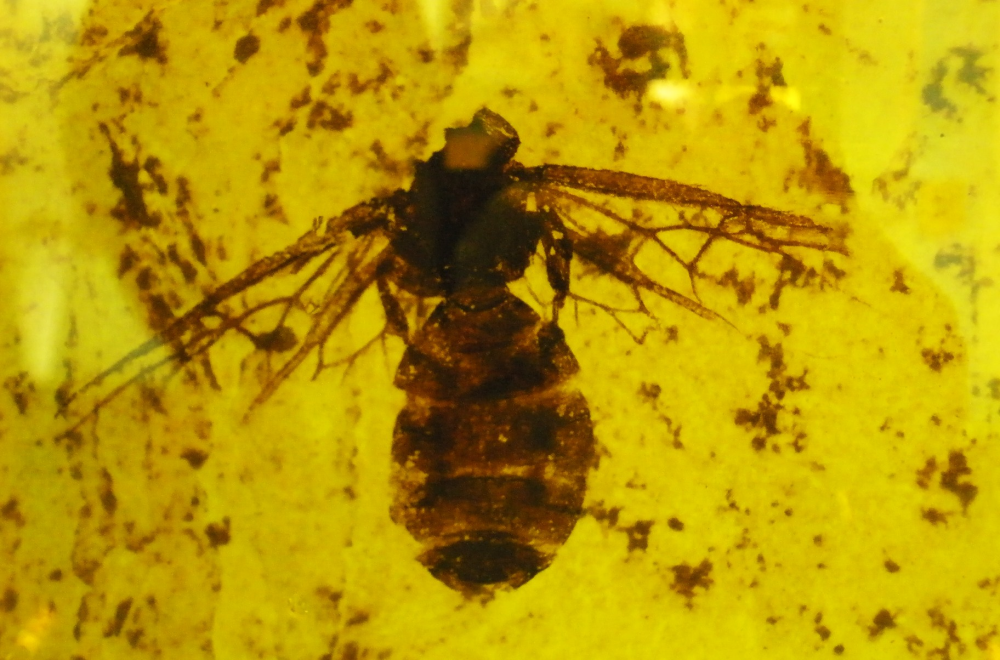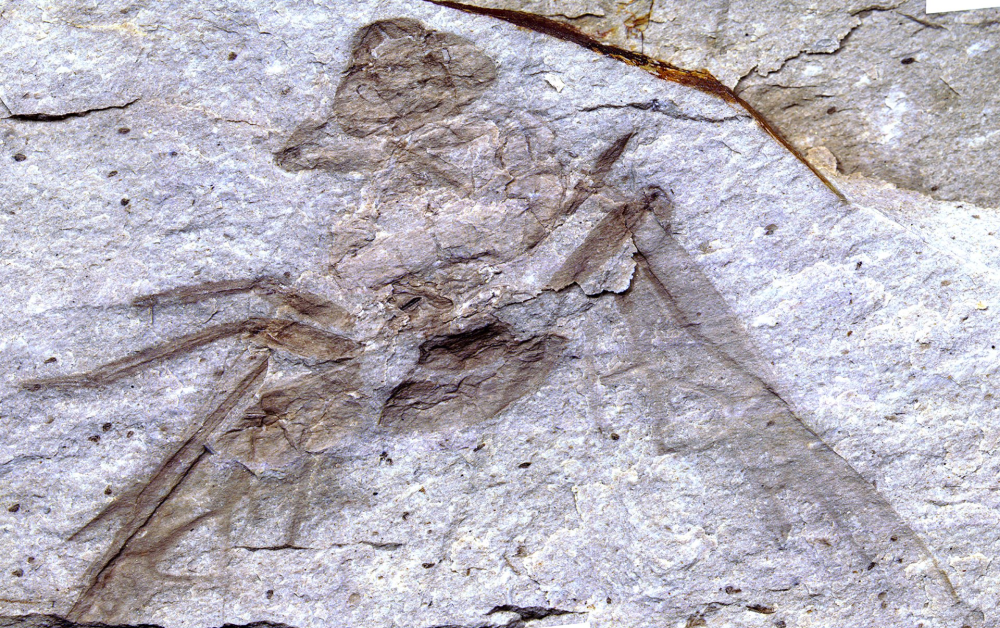Flying ant day. It’s a bit of a mare, isn’t it? But might we offer some light relief the next time you find yourself surrounded by winged insects by reminding you that there was a time when things were much, much bigger. Say hello to Titanomyrma, the biggest ants ever to have walked the Earth.
Had you lived during the Eocene epoch, you might’ve encountered these enormous ants. There are several species within the genus. The queens of one whopper named Titanomyrma giganteum had a body length of 7 centimeters (2.8 inches), comparable in size to a hummingbird, and had a whopping great wingspan of 15 centimeters (5.9 inches). It’s recognized as the largest ant species ever in the Guinness World Records, after a giant fossil was retrieved from the Messel shales in Germany.
Another Titanomyrma was discovered over in Canada, as described in a 2023 paper, raising interesting questions about how they dispersed across the Northern Hemisphere around 50 million years ago. That their fossils appear on both sides of the Atlantic at nearly the same time demonstrates these ancient insects were traveling between continents.

Behold, Titanomyrma gigantea.
At this time, Europe and North America were still connected, as the North Atlantic had not yet opened up enough to separate them, but that’s not to say the journey would have been a comfortable one. We know the biggest queens have been found in places that would’ve been hot back then, indicating large size is associated with high temperatures. Still, that doesn’t address how they passed through the ancient Arctic, which – though warmer back then than it is today – still wouldn’t have been hot enough for them to handle.
In 2011, the team proposed that brief global warming events called “hyperthermals” may have enabled Titanomyrma ants to migrate through otherwise cooler regions. They therefore reckoned this meant the ants wouldn’t be found in ancient temperate Canada, but then the discovery of a fossil that had been sitting in a museum drawer in Denver blew that theory out of the water. The fossil is a bit squished, however, leaving uncertainty as to whether it was really a giant or actually a bit smaller.

The giant (and slightly squashed) fossil queen ant Titanomyrma discovered in the Allenby Formation near Princeton, British Columbia, the first of its kind in Canada.
Image credit: Bruce Archibald
“If it was a smaller species, was it adapted to this region of cooler climate by reduction in size and gigantic species were excluded as we predicted back in 2011?” said study author Bruce Archibald in a 2023 statement. “Or were they huge, and our idea of the climatic tolerance of gigantic ants, and so how they crossed the Arctic, was wrong?”
“Understanding how life dispersed among the northern continents in a very different climate 50 million years ago in part explains patterns of animal and plant distribution that we see today. Titanomyrma may also help us better understand how global warming could affect how the distribution of life may change. To prepare for the future, it helps to understand the past.”
Some of today’s biggest ants are also found in the planet’s hottest places, from the Amazon giant ant in South America, to African army ants that form massive colonies that stage aggressive raids. As the planet gets hotter, does that mean we’re forecasting more big juicy ants in future? We’ll find out on flying ant day, I guess.
Source Link: Hate Flying Ants? We Used To Have Ones The Size Of Hummingbirds